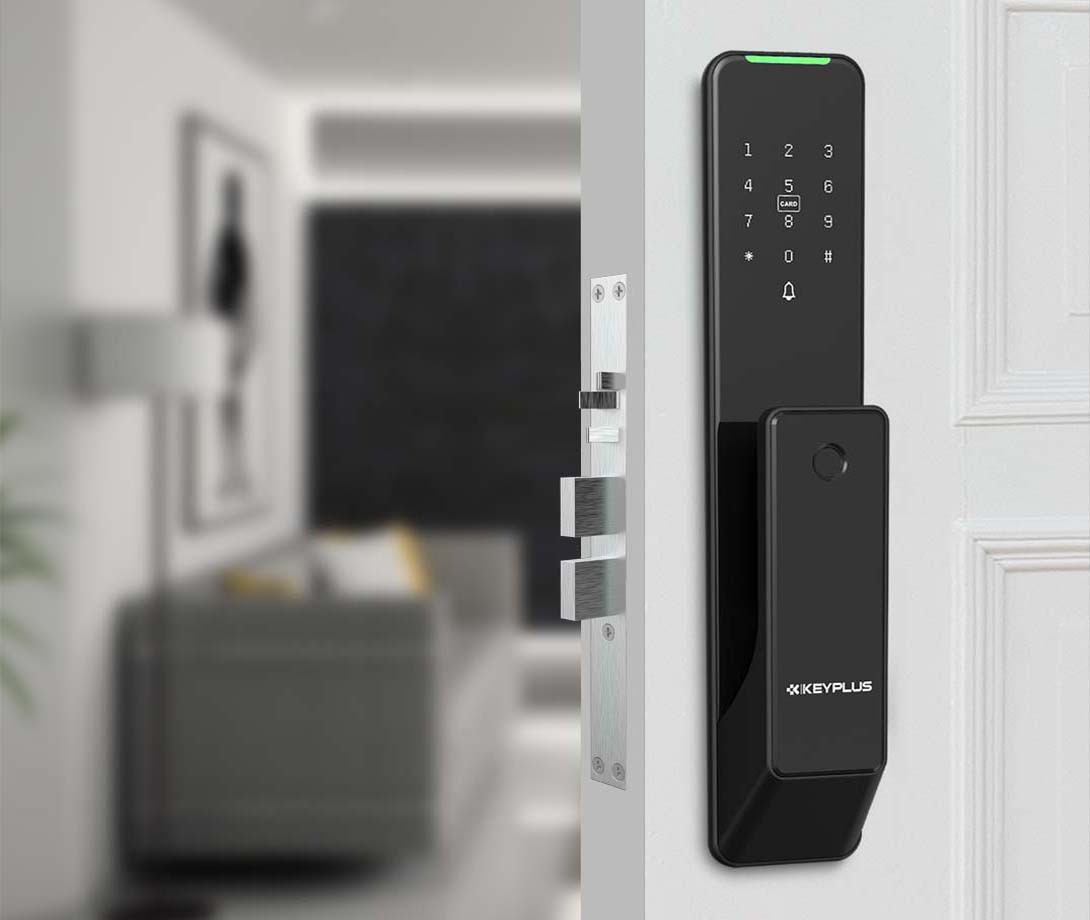What Is a Smart Door Lock? A Complete Guide for Modern Homeowners
In today’s connected world, traditional keys are becoming a thing of the past. Smart door locks offer a keyless, secure, and convenient way to control access to your home. But what exactly is a smart door lock, and how does it work?
This guide will cover:
- What a smart door lock is and how it differs from traditional locks
- Key features and benefits of smart locks
- Different types of smart locks available
- How to choose the best smart lock for your home
1. What Is a Smart Door Lock?
A smart door lock is an electronic locking system that replaces or enhances a traditional deadbolt. Instead of requiring a physical key, smart locks allow you to:
- Unlock your door via smartphone, keypad, fingerprint, or voice command
- Grant temporary or permanent access to guests remotely
- Monitor who enters and exits your home in real-time
- Integrate with other smart home devices (like security cameras or voice assistants)
Unlike traditional locks, smart locks connect to your home’s Wi-Fi, Bluetooth, or a smart home hub, enabling advanced security features and remote control.
2. How Does a Smart Door Lock Work?
Smart locks use wireless technology to communicate with your smartphone, a hub, or other smart devices. Here’s how they function:
A. Keyless Entry Methods
Most smart locks support multiple unlocking options:
- Smartphone App (Unlock via Bluetooth or Wi-Fi)
- PIN Code (Enter a number combination on a keypad)
- Fingerprint Scan (Biometric authentication)
- Voice Control (Works with Alexa, Google Assistant, or Siri)
- RFID/NFC Cards or Fobs (Tap-to-unlock)
- Auto-Unlock (Detects your phone and unlocks automatically)
B. Remote Access & Notifications
- If your lock is Wi-Fi or hub-connected, you can lock/unlock it from anywhere.
- Receive real-time alerts when someone enters or exits.
- Create temporary access codes for guests, cleaners, or Airbnb rentals.
C. Smart Home Integration
Many smart locks work with:
- Amazon Alexa (“Alexa, lock my front door.”)
- Google Home (“Hey Google, is my door locked?”)
- Apple HomeKit (For iPhone users)
- Security systems
3. Types of Smart Door Locks
Not all smart locks are the same. Here are the most common types:
A. Keypad Smart Locks
- Unlock with a PIN code (no smartphone needed).
- Best for: Families, rentals, or shared spaces.
B. Bluetooth Smart Locks
- Unlock via smartphone when nearby (short-range).
- Best for: Personal use (no remote access without a Wi-Fi bridge).
C. Wi-Fi Smart Locks
- Control from anywhere via the internet.
- Best for: Remote access and real-time alerts.
D. Fingerprint Smart Locks
- Scan your fingerprint to unlock.
- Best for: High-security needs.
E. Z-Wave/Zigbee Smart Locks
- Require a smart home hub (like Samsung SmartThings).
- Best for: Smart home enthusiasts.
4. Benefits of Smart Door Locks
A. No More Lost Keys
- Forget worrying about misplaced or copied keys—use digital access instead.
B. Remote Access & Monitoring
- Check if your door is locked from your phone.
- Let in guests or service workers while you’re away.
C. Enhanced Security
- Auto-lock feature ensures your door is never left unlocked.
- Tamper alerts notify you of suspicious activity.
D. Convenience
- No fumbling for keys—your phone or fingerprint is all you need.
- Voice control for hands-free operation.
E. Customizable Access
- Set time-limited codes for cleaners, dog walkers, or Airbnb guests.
- Revoke access instantly if needed.
5. Potential Drawbacks of Smart Locks
While smart locks offer many advantages, they also have some limitations:
A. Power Dependency
- Most smart locks run on batteries (last 6-12 months).
- If the battery dies, you may need a backup key or external power.
B. Wi-Fi Reliability Issues
- Weak Wi-Fi can cause connection delays or failures.
- Some locks require a hub for stable connectivity.
C. Higher Cost
- Smart locks are more expensive than traditional deadbolts.
- Prices range from $100 to $400+ depending on features.
D. Security Risks (If Not Properly Secured)
- Hacking risks (though rare with encrypted models).
- Always choose reputable brands with strong security protocols.
6. How to Choose the Best Smart Door Lock
When selecting a smart lock, consider:
A. Connectivity (Wi-Fi, Bluetooth, or Hub-Based?)
- Wi-Fi: Best for remote access.
- Bluetooth: Best for local use (no remote control).
- Z-Wave/Zigbee: Best for smart home integration.
B. Power Source
- Battery life: Look for long-lasting batteries (or rechargeable options).
- Backup options: Some locks have key overrides or USB power.
C. Installation
- DIY-friendly: Many smart locks are easy to install (no locksmith needed).
- Compatibility: Ensure it fits your door type and existing deadbolt.
D. Security Features
- Encryption: Look for AES 128-bit or higher.
- Auto-lock: Ensures the door locks after a set time.
E. Smart Home Compatibility
- Check if it works with Alexa, Google Assistant, or Apple HomeKit.
Final Verdict: Are Smart Door Locks Worth It?
Yes! Smart door locks provide convenience, security, and peace of mind. Whether you want keyless entry, remote access, or smart home automation, there’s a smart lock for every need.
Key Takeaways:
Smart locks eliminate the need for physical keys.
Choose between Wi-Fi, Bluetooth, or hub-based models.
Look for long battery life, strong encryption, and smart home compatibility.
Best for homeowners, renters, Airbnb hosts, and tech enthusiasts.
Still Unsure Which Smart Lock to Buy?
If you need help choosing the right smart lock for your home, comment below with your needs, and we’ll recommend the best option for you!
Upgrade your home security today with a smart, keyless future.
Post time: Jun-09-2025


